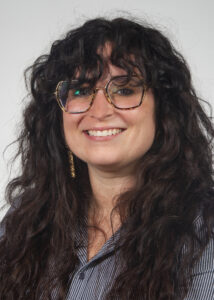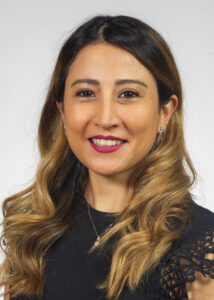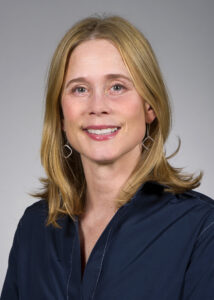3 faculty receive inaugural Teaching Excellence Grant
Three College of Dentistry faculty members were among 13 recipients of the newly created Teaching Excellence Grant from Texas A&M University Health Science Center funded by the WoodNext Foundation. Professor Kayla Reed, Dr. Mehnaz Tahmasbi and Dr. Carolyn Kerins will use their awards to fund unique pedagogical projects, novel methods and /or technologies that create greater learning opportunities for students.

“Several aspects of the project was considered. Innovation, the direct impact on student learning, how the project would be implemented, the outcome metrics and dissemination plan were the core areas included on the rubric the committee used to review,” said Associate Dean for Faculty Affairs Lisa Mallonee, who was on the sub-committee tasked to develop and promote the grant. “These were key components that had to be addressed. The submissions had to show how students were going to be actively involved in the learning process. . The sub-committee was very pleased by the number of applications received for this inaugural award; we had several great applicants from the College of Dentistry.”
Professor Kayla Reed, clinical assistant professor in dental hygiene, was awarded $10,000 to go toward the acquisition of a mixed-reality dental simulator. The ideal equipment could provide students simulated patient experiences, she said, through a combination of virtual reality, haptic feedback and/or augmented reality. This will supplement their experience with real patients. Reed said she first got the idea for a virtual reality program like this during the COVID pandemic, when students were unable to treat patients.

“We were suddenly faced with the need to educate students without patients,” Reed said. “That’s a huge part of our accreditation standard, our licensing, to show that our students are competent with treating live patients. I’m really interested in incorporating new technology into the dental hygiene curriculum, adding some sort of simulation to help with educating students when we don’t have patients.”
Dr. Mehrnaz Tahmasbi, clinical associate professor in diagnostic sciences, was awarded $6,022 for the acquisition of a laptop and InVivo6 dental software. This technology will be used to teach students more about Cone Beam Computed Tomography (CBCT), a type of scanning equipment that provides a 3D view of head and neck anatomy. This will be vitally important for students, Tahmasbi said, because the leap from learning from 2D images to seeing real-life anatomy can sometimes be bigger than one would think.

“When you look at conventional images like periapical and panoramic radiographs, you are looking at 3D objects in two dimensions,” she said. “Students will gain a deeper understanding of head and neck anatomy by reviewing CBCT studies, essential for dental treatment, and planning and surgery. Additionally, when students graduate, they may end up using CBCT machines in their practice. This hands-on training helps them to understand how to use the software and interpret the CBCT studies.”
Dr. Carolyn Kerins, associate professor in pediatric dentistry, was awarded $5,000 for the implementation of Entrustable Professional Activities within the Pediatric Dentistry Graduate Program. EPAs will allow for more frequent and robust formative assessments of graduate students in a standardized fashion, which will help ensure students are learning what they need to know and gathering accurate and timely data for future analysis.
Each grant recipient has 12 months to implement their projects. Although not a required component for the teaching excellence grant application submission, it is hoped that the results from these novel examples of pedagogy will be shared regionally or nationally as poster research or a manuscript submission.